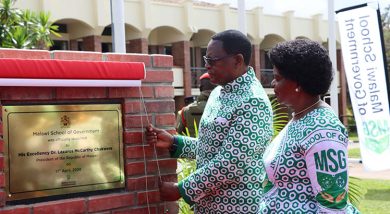Archaic law affecting immigration work
A review of the country’s Immigration Act (1964) has exposed glaring shortfalls in how the Department of Immigration and Citizenship Services was set up and how it is operating.
Speaking during a review meeting in Mzuzu on Friday, Special Law Commission on the Review of the Immigration Act chairperson Justice Rezine Mzikamanda SC said the 1964 Act, which came before Malawi’s first Constitution of 1966, needed reviewing.

He said the immigration challenges have increased over time due to globalisation and travel; hence, the need for a clear way to manage migration in Malawi.
Said Mzikamanda: “You will be surprised that the Immigration Department is not provided for in the Constitution or in the Immigration Act, to the extent that you would say everything happening is being done administratively and that has brought in a lot of challenges. We can’t have that in a new constitutional order we have.
“We are simply saying that the department exists, but that it doesn’t exist expressly under the law. There have been policies and instruments that have given it some force of law, but we want to be absolutely clear on the law that the department exists on its own within the legal framework.”
On his part, Department of Immigration deputy director general Commissioner Fletcher Nyirenda, who is also part of the review committee, called for a speedy review of the law, saying their operations are being affected.
On business residence permits (BRP), he said there is a plan to raise the fee from $50 000 to $250 000 and also reduce its validity from the current five years as many “briefcase investors” take advantage of the period to venture into other things.
He said: “There are many briefcase companies that would want to come to Malawi, and just for purposes of getting a long-term permit, they would want to go for the BRP because it is for five years. However, when you see operations on the ground, they don’t speak to that.
“The other problem is through minimum capital requirement, because they are required to come and invest $50 000. We have noted that these would be investors just to recycle the money already in the country. So, Malawi doesn’t benefit from foreign direct investments, there is no foreign injection. These people just borrow each other locally the $50 000.”
Traditional Authority Mwabulambya, one of the participants, said it was a shame that the country has all along not seen the need to review the law despite evidence of numerous challenges being faced.
Section 24 A (1) of the Immigration Act stipulates that any person being issued a BRP may be authorised to bring along his wife and children under the age of 18 and dependent relatives to reside in Malawi.






One Comment